“Is it smoky? Do you smell smoke?”
“No, love. It just rained. I don’t smell anything,” he said.
But I smelled it. Was it in my imagination?
Kyle and I were waiting curbside at LAX, our hands on our suitcases, backpacks on. Everything looked the same as when we usually arrived. After almost ten years of going back and forth from New York to LA, we had the travel down to a science.
“Aren’t we supposed to wear masks?” I asked, looking around. “No one else is wearing a mask.”
“I think we’re okay,” Kyle said. “But I put the masks in your backpack.”
I unzipped and put one on. Was I being foolish? Back in New York, I’d been reading nonstop about the air quality in LA. How cancer-causing particles too small to see were in the air. How not smelling something bad didn’t mean it wasn’t bad. But now, no one else was wearing one. Should I ignore the articles? People here must know better, right?
Why risk it? I put on a mask.
The plan was to get a car from the airport and drop me off at my clothing drive pop-up and bookstore in Santa Monica. Then Kyle would pick up his car which he’d dropped off to get serviced the last time we were in LA. It had been at the dealership now for weeks.
I wasn’t sure I wanted to go up to see our home, even though just a few days ago, all residents had been cleared to go up to their homes with a special pass and protective gear. Honestly, I wasn’t sure I could take it.
Plus, I knew our house was okay. The day before, a friend had gotten inside and sent us a 7-minute video which I watched on my phone laying on my stomach on my living room carpet, a kid on either side of me like sardines, as the three of us stared at the footage.
“It’s okay!”
“It looks the same!”
The kids were jubilant.
I was relieved. Turns out, the indoor sprinkler alert that went off the first night of the fire was a false alarm. In the video, everything looked frozen in time, just how we’d left it. But our friend had told us everything was smoky. Piles of ash collected by each window and skylight. But thank God. It was still there. After all our friends, neighbors and community lost theirs, it wasn’t exactly cause for celebration.
But as we drove on the 10 freeway towards my bookstore and pop-up, I changed the plan. (I always change the plan. It’s one of my worst habits. I look at it as constantly optimizing based on real-time inputs, but loved ones don’t exactly embrace the instability of my ever-changing itineraries.)
“Maybe we should go get that pass now instead,” I suggested.
The next morning, Kyle would be meeting the insurance agent to head up to the house. The plan was that he would get the pass on his own, but I wanted to be there. What if there was an issue with our IDs which had our New York address on them? What if I had to show some of the additional documentation which was bulging out of a folder in my backpack, paperwork proving we owned our home?
“It’s fine. I can do it later,” he said. “I’ll figure it out.”
The driver of the car that picked us up told us that there had been lines of cars on the Pacific Coast Highway earlier that week and we had to go there first before even trying to get to our home.
“You might want to go now before it closes,” he said.
“Let’s do it.”
I turned to Kyle.
“Then you can drop me at the store and pick up your car after.”
“Okay,” he said. “Whatever you want.”
We would go over this discussion later. I shouldn’t have pushed us to go right then. But I did. One of my many mistakes.
The pick-up spot for the badges was in a beach parking lot in Santa Monica. As we drove down California Incline and turned left, we saw cops and orange cones. Turning into the lot, with the gorgeous ocean beside us, we lined up with about 100 other cars to get our pass. Red Cross and World Central Kichen tents plus a tent from Mayor Karen Bass’s office were pitched between the cars and the ocean. A volunteer offered us water, oranges, and a to-go carton of food.
“Here you go,” he said, through our window.
“We’re okay,” I answered, declining.
I looked at Kyle.
“They’re giving this to us. We’re the people.”
How had this happened? We were the people in the movie. The next tent, as we inched forward in line, was PPE, protective equipment.
“Honey, you should grab those,” I suggested.
“Got it!”
Kyle popped out and got three plastic bags full of donated equipment. Inside were goggles, a white hazmat suit, plastic sleeves for our shoes, a N100 mask, and what looked like gardening gloves.
“We don’t have to wear all this,” Kyle said. “This is for people whose homes burned to the ground and they’re going to walk around in it.”
“You don’t know that,” I answered. “If they didn’t think we needed it, why would they be giving it to us?”
I paused. Who knew what the right thing to do was?
“Let’s go to the house now,” I suggested. “We’re already on the way. I want to see it.”
Of course, this wasn’t the plan.
“I feel like I should go get my car first,” Kyle said.
“But we’re so close. I just want to see it. Let’s run up for two seconds and then you can spend all day tomorrow there. I feel like I need to at least see it for myself.”
I mean, how could I have waited on the long line, gotten the gear, and then not gone? I’d be able to handle it. I had to.
I unbuckled my seatbelt and got dressed in the white garb as we headed up the hill. I’d seen a few Instagram videos of people wearing it, but now it was me.
Suddenly, Kyle said, “Honey, look up.”
As I’d been getting ready, we’d driven up Chautaqua and were about to get to Sunset. We passed a National Guardsman and a tank.
“Hello, sir,” the National Guardsman said, as we showed him the pass and told him our address. “Go right ahead.”
This was insane.
We drove past the barrier. There were no other cars around. Normally, Sunset is teeming with traffic in both directions, two lanes on each side cutting across like the belt of the neighborhood. But it was empty. Silent.
We started driving and — oh. Oh my gosh.
I gasped and covered my mouth.
“Kyle, look!”
The first few homes I saw were black, mangled messes of steel beams, piles of burned, beloved items now unrecognizable, and gnarled tree branches. Was that a metal bench? A chimney askew?
“This side too,” he said.
I’d started filming but kept flipping from one side of the car to another. And then, I threw my phone down. It wasn’t capturing what I was seeing. It made it all look small. It wasn’t small. It was massive. Everywhere. Everything. Was. Burned. Gone. Black.
Occasionally a home was still standing, but then another one would be leveled. Some piles were higher than others. Sometimes I could make out part of a wall or a beam. Some had the frames of hollowed-out cars, incinerated. No wheels. Just a burned shell.
And this was all just between Chautauqua and the town of the Palisades. The sky was bright blue, just a few puffy clouds aimlessly puttering around. The air was still. It would’ve been a beautiful day.
But it felt haunted.
“Look, the fire station,” Kyle said, squeezing my hand.
“Wait! Can you pull over?” I asked the driver. “I have all those cards!”
One of my team members at the pop-up, Jordan, had started asking schools for cards to decorate the space and to give out to those who’d lost their homes. So I’d asked the lower school principal at my kids’ school if the kids could make cards, too, even for the firefighters.
Firefighters had saved our home. Four of them. Our house was just a mile from where the fire had started. The first call of the day. Thanks to that timing, “our” firefighters were headed to a small brush fire that morning, but then saw the giant plumes of smoke on our hilltop and radioed in that they were going up. They didn’t know then what it would become.
The firefighters put out the fire in our storage shed on one side of the house. Then, they went into the backyard and put out flames that were burning through the top of our hedges on the other side of the house. They put the flames out just before they enveloped the wooden pergola over our outside dining table. T
The firefighters saved our house. They saved our immediate neighbors’ homes. They did all they could.
I opened the car door and walked outside in my gear. I could hear my Target boots clomping on the sidewalk and then inside the firehouse, echoing. I felt so small. The fire engines were lined up like the toys my sons used to play with, their ladders in place, one after another. I walked around clutching the purple folder of hand-made cards by second graders across the country.
“Hello?” I called out.
A very tall fireman in jeans and a t-shirt was on the phone in the back.
“Hold on,” he said, and pressed the phone against his chest. To me: “How can I help you?”
“Hi! I have cards from kids in New York who are so grateful for your service.”
I opened the folder and showed him the drawings of rainbows and hearts.
“That’s so kind,” he said, as I flipped it closed. “I’ll put it in the kitchen where all the guys go and they’ll take them from there.”
“Perfect,” I said, handing it over. “Thank you so, so much. For everything.”
“You’re welcome, ma’am.”
I’d posted our home security videos of the four firefighters who had saved our home and had asked for help finding them so I could say thank you. Fire wives and firefighters helped and by the end of the day, I was texting and DM’ing with two of them. We sent the guys lunch at the firehouse the next day. We still text.
I gave Kyle a thumbs up sign and jumped back in the car.
The town.
As we drove slowly through and saw all the places we knew (was it them? Some were hard to identify), I burst into tears.
“Oh my gosh,” I said, crying. “Look at it!”
The devastation was big. It was tall and wide. Buildings that crumpled were still huge compared to us. Walls were gone. Rubble. Ralph’s. Gelson’s. Entire streets. The Starbucks that the kids and I had just been to days before the fire started. I would look on one side and then whip my head around and the other side would be just as bad. I could see all the way down the street where my favorite restaurants were. As far as the eye could see, it was just leveled. Everything was grey, black, smoldered. I clutched my stomach. Was I breathing harmful air or did I feel sick because it was truly gruesome? How could our entire town be gone?
I’d seen videos of this. In fact, I’d obsessively watched hours of footage of it. I’d had nightmares every night for weeks. It was all I could think about. But driving through the town and past all the burned homes there was even more horrifying.
My pulse sped up. I didn’t just feel sad. I felt scared. I could feel some primal fight or flight adrenaline coursing through my veins. As we kept inching through, I hugged myself, trying to make myself smaller, grateful I had my layers on, the googles, all of it, because I felt so emotionally exposed.
We turned onto the street that led us up to our home. I can’t even guess how many times we’d made that turn, passed those same houses right where cell service always cut off and we had no choice but to look around. We knew every landmark. And yet, as we drove up, house after house was just.. rubble. They weren’t gone. They were still there. But they were attacked, consumed, disfigured. I cried again.
Kyle and I held hands as we crawled up towards our home. We passed one lot and saw a white-haired gentleman standing bereft in the middle of what was his house, looking in the remains for anything he could find. He looked stunned. Broken. Kyle wiped away tears. A few houses up, a young family was standing at what would’ve been the entry of their house. They nodded at us as we nodded back, masks, goggles, space suits. How? How could this be?
Then I saw the mountain. From videos and pictures, I knew the hills had been burned and were brownish. Maybe it would look like they were just going through a dry phase? No. Up close, they were otherworldly. The land looked like it was from another planet. A few errant plants dotted the formerly majestic mountains now stripped bare as if someone had sliced them open and then thrown away many outside layers, like a peeled, rotten apple. They looked inside out. And so big. These hills were like 100-story buildings. Now, all scorched earth.
When I’d shown the kids photos of the hills online, one of my kids said, “It looks like ‘Te Ka.’” In the Disney movie, “Moana,” the land goes through something like this and love ends up bringing it back to its former glory as “Te Fiti.”
We need that now.
Up and up and up we went, gasping at every home lost.
“The one with the red door!”
We’d spent hours walking up and down these streets. “Hiking” up and down our hill was one of our favorite things to do, especially when we first moved in. It was our shared time together, chatting as we explored the side streets, marveling at all the homes seemingly frozen in time. We always felt like we were on a movie set. The neighborhood was something we experienced slowly and intimately over years. The special mailbox on this side. The peach house on that side. The one with the basketball hoop. The modern one there. It was our neighborhood. We didn’t know everyone who lived in all the homes, but we’d passed them all so many times over so many years. On walks. Workouts. Now they were all gone. Just…leveled.
The nature elements interspersed were also terrifying. A centuries-old oak out of the ground, the roots exposed as it lay helplessly on its side. It was like the land was crying. The tree branches were curled in on themselves.
“I feel like I’m in a horror movie,” I said. I hate horror movies. I get scared easily. You won’t find me on the “Tower of Terror” ride. You won’t see a single remotely frightening film in my Netflix history. I avoid it all. And yet, there I was, immersed.
Saying, “I’ve never seen anything like it,” feels too flat. But I haven’t. I probably never will again. Most people will never see anything like this, ever. It was just so… big. Overwhelming. Chiseled and fried. I thought our homes were there for good. Shelters from the storms. It was this easy to erase it all?!
I knew I was breathing quickly as we got closer to our house. Anxiety. Fear.
“I have to get out of here,” I cried. “Seriously. Let’s only stay a minute. We have to go. We have to get out.”
Every cell in my body was telling me to flee. To escape. What was this horrific wilderness?
Somehow in the middle of this was our home!?!?! Our beloved home with our cozy TV couch and beautiful bedroom? Our Serena and Lily wallpaper. My white bathroom towels with light blue piping. Our family photograph wall. The chairs in our living room that we bought from a store in the village and carried over our heads back to our cars. Our home with all its charm and personality, all my clothes that were hanging in the closet, and our kids’ toys. That was right here?!?! In this neighborhood that I didn’t recognize and that I was having such a physical reaction to I wanted to run all the way back to New York? How could that be?
And then, there it was.
Our home.
The outside was covered in debris and ash. Smashed potted plants. Branches all over. We opened the front door and pushed over a pile of black ash. The house smelled smoky, although I felt like everything smelled smoky. I slowly walked down the dark hallway to the kitchen, the power still out, practically shaking. Nothing had moved. A pile of unopened mail was next to all our plants, now drooped, dying.
A silver Jewish star was still on the table, a gift from Hanukkah. I took a picture. It felt like a message from God. Honestly. Did it mean we would be okay? Perhaps a reminder that God was watching over us. All of us. That our neighborhood would repair. Somehow. And that we weren’t alone.
The rest of the house was as we'd left it, aside from ash that had gotten through. And yet, it didn’t feel the same. It didn’t feel okay. It felt like it was on life support. It was such a part of me, us, but everything felt wrong. Of course, I felt enormously lucky that it was even still standing. But standing where? In the middle of a horror zone that was previously the most beautiful place on earth?
“Let’s go see the backyard before we go,” Kyle said.
“Okay, but quickly.”
Later, we would talk about how I’d rushed us out, how Kyle was processing things, how much he wanted to stop everything and water the plants and start gently taking care of our injured home. But right then, I felt compelled to flee.
As I closed the front door, I took off my glove for a second. Then, I worried that I’d touched ash on the door handle that would be irreparably harmful. Did the hand sanitizer I quickly used after help?
The backyard felt apocalyptic. Barren. Brown. All the leaves were falling off like winter had come but only a couple weeks had passed. Our potted trees were toppled over on the lawn. The greenery, burned. Cushions scattered. The pool water, black. I felt like I was at the edge of the earth, like the end of the world had come.
I couldn’t wait to get out. And yet, for so long, I’d longed to get back in. What was wrong with me?
Driving back down the hill, my phone kept ringing. I ignored it. I couldn’t talk. I couldn’t take photos. I was trying to process. I think my jaw was open. In shock. And on the way down, I saw all new areas that were destroyed.
“It just keeps going. Look, there, too!”
As we drove back towards Santa Monica, homes were destroyed for miles. It wasn’t just the downtown. It wasn’t just a few homes. It was so far. How had this one fire burned through so much in so many directions? How could it do that? We’d been driving for 15 minutes and there were still entire neighborhoods, flattened. We could see over blocks and block and blocks which had all turned to piles of remains. All those people! I couldn’t take it.
I thought going to L.A. would make me feel better. Maybe if I went out there to see it, my trauma response would be tempered. Maybe I could try to move on.
But it was so much worse.
It was so much worse than I could ever have imagined because it was just so big, so tall, so wide, so far, so mean. It was terrifying.
I stripped off my protective equipment and wiped the tears away before we got to my bookstore and pop-up where I would soon be hugging my team, hugging strangers, smiling and talking and trying to seem upbeat and happy, to be a steady, consoling force to those who came who had lost everything.
But in the back of mind then and as I lay in bed replaying it over and over and over, and now, the morning after, it was still dark. Twisted. Ghoulish.
How will the neighborhood ever go back to normal? On the news, they talk about the clean-up effort. Clean up?! To clean up one of those homes and rebuild it would take years. But there are miles and miles of destruction. How will this ever get done? Will the Palisades ever be able to recover? I hope and pray it will. But operationally, turning the wasteland that I just saw back into the charming, loving, beautiful neighborhood it was seems absolutely impossible. Where does anyone start? And then I think about how much construction and building it will take — all at once?!
Kyle feels like we’ve just had a catastrophic injury, like when he watched Aaron Rodgers, four plays into the football season, tear his Achilles, and immediately have surgery and begin rehab. The road to recovery and becoming even stronger has started. Kyle didn’t feel my same impulse to run away. For him, the house felt wounded, and he felt called to take care of it, the way it had taken care of us.
The streets are eerie. Even in Santa Monica, about 10 minutes away from where the fire stopped its destruction in Brentwood, the town felt abandoned. Where is everyone?
I’m glad we’re giving out clothes and books. But my efforts suddenly feel like a joke. Really? A few new sweaters? A couple books? Look what was lost! Look what it looks like now! Look at this level of destruction, not just personal but collective! How can anyone, any community, get over this? Not to mention the horror of losing all your lifelong possessions for so many people. How?
I don’t know. But I’m going to try. I’m going to keep providing a few moments of normalcy — look how cute this skirt is! — because even though the environment has shape-shifted around us, we’re all still us.
Even displaced and grieving, people need to fill their time with distractions and entertainment — especially now. Even though the homes are gone, the spirit of those homes remains; it didn’t come from steel beams and wood planks, wallpaper and dish towels. It came from who was inside it and who made it a home. It came from hugs and families and playdates and laughter at the dinner table and quiet afternoons reading and silverware clattering in the sink after meals. It came from the interactions of everyone who lived in the neighborhood, the hellos on the street, the dogs barking.
I know so many people have left the area already. I mean, they have to. There is no neighborhood right now. People have moved to Marina del Ray, West Hollywood, Beverly Hills, Manhattan Beach, the east side. Friend groups have splintered at a time when being together matters most as everyone moves and schools relocate. It’s like the universe is doing everything in its power to destroy the people of the Palisades. And Altadena. And Malibu. And everywhere else affected.
But guess what? We are better than this. We may not have a physical space. We may not be able to gather together right now. But communities can’t be burned down by fires. Communities are the heart of it all. It’s like the Jewish diaspora. We started from one place and then spread out all over the world, fleeing, relocating. But the Jewish people are still united and still have a strong sense of who we are. In fact, now more than ever.
As a Jewish woman under attack, I started wearing a Star of David necklace to show everyone I’m part of the team. I’m in it. We need an outward marker of this trauma. A pin. A necklace. A badge to say I was part of this even though “this” doesn’t exist anymore. We need identifiers so we know. So we’ll always know. Designers, get going.
This fire is like the beginning of a new diaspora. It’s true that “here” will never be the same. I honestly don’t know how the it can physically recover or how long it will take or what it will look like when it’s rebuilt. I can’t predict. I can only hope. But it won’t be what it was. And we all need to grieve for that. Because my god, it was perfect.
Note: For anyone judging my reaction to this because I’m not a full-time resident of the Palisades or because my home didn’t burn down or because I wasn’t here for the past three weeks or because my kids don’t go to school here, I would beg you to please be kind.
Grief and trauma affects us all very differently. Let’s use a fireplace fire as an example. What happens when we all add the exact same new log to our fireplace fire, depends on the structure of what was underneath it. The addition could cause a bigger fire. Or a just a simmer. It could even put the fire out. We all have our stuff underneath.
So I would beg everyone to be kind right now. I would beg you to leave aside the instinct to judge others in a snarky way and perhaps look at why you feel like you need to put down other people, especially at a time when they are hurting.
Because I am hurting, as is Kyle. No, I am not a full-time resident, but I am entitled to my grief. So is the person in Arkansas who cries for our community having never stepped foot in California. It’s human. It’s okay. We can all mourn something, like when we cry for a celebrity who dies having never met them.
There are no right or wrong ways to recover from a massive natural disaster. No one is too close or too far away. No emotion is ever “wrong.”
So for those of you feeling dismissive or feeling like I’m “making this about me” (and yes, I have heard this), I promise: I’m not. I’m using my voice and my writing to share insights into one of the biggest natural disasters ever. I’m standing on the edge of the land and mentally scribbling notes so I can bring it back to everyone else, so we don’t forget, so we don’t all move on and just think, “Oh, how terrible,” and go back to work.
No. This is bigger than that. And I am here to react, transcribe, and tell the story. This isn’t ending anytime soon. Thousands of people are affected, including Kyle and me. You can be snarky and judgmental. Or you can put aside your biases, perhaps examine where they’re coming from before tossing them in the trash, and actually stand up and help.
Speaking of help, I know everyone out there is looking for ways to help the community. I’ve sent links to charities like Baby2Baby, Good+ Foundation, the LAPD Fire Foundation, and others. I’ll also be starting something soon on a much smaller scale related to books. So stay tuned.
If you need help getting through this trauma, I encourage you to watch the livestream of trauma expert Meghan Riordan Jarvis at Zibby’s Bookshop. Meghan recommends simple steps for getting through grief and loss, like taking a short walk outside every day, making sure you’re eating protein, limiting how often you retell the story, and writing about it. (Thanks, Meghan. Done.)
Sending love and strength to everyone out there. We will get through this. Somehow. Together.


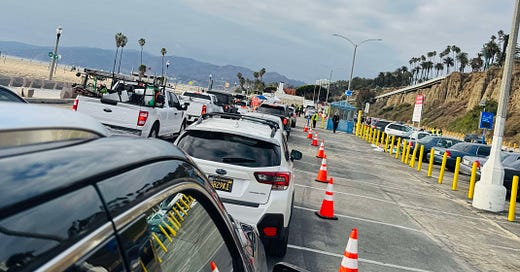



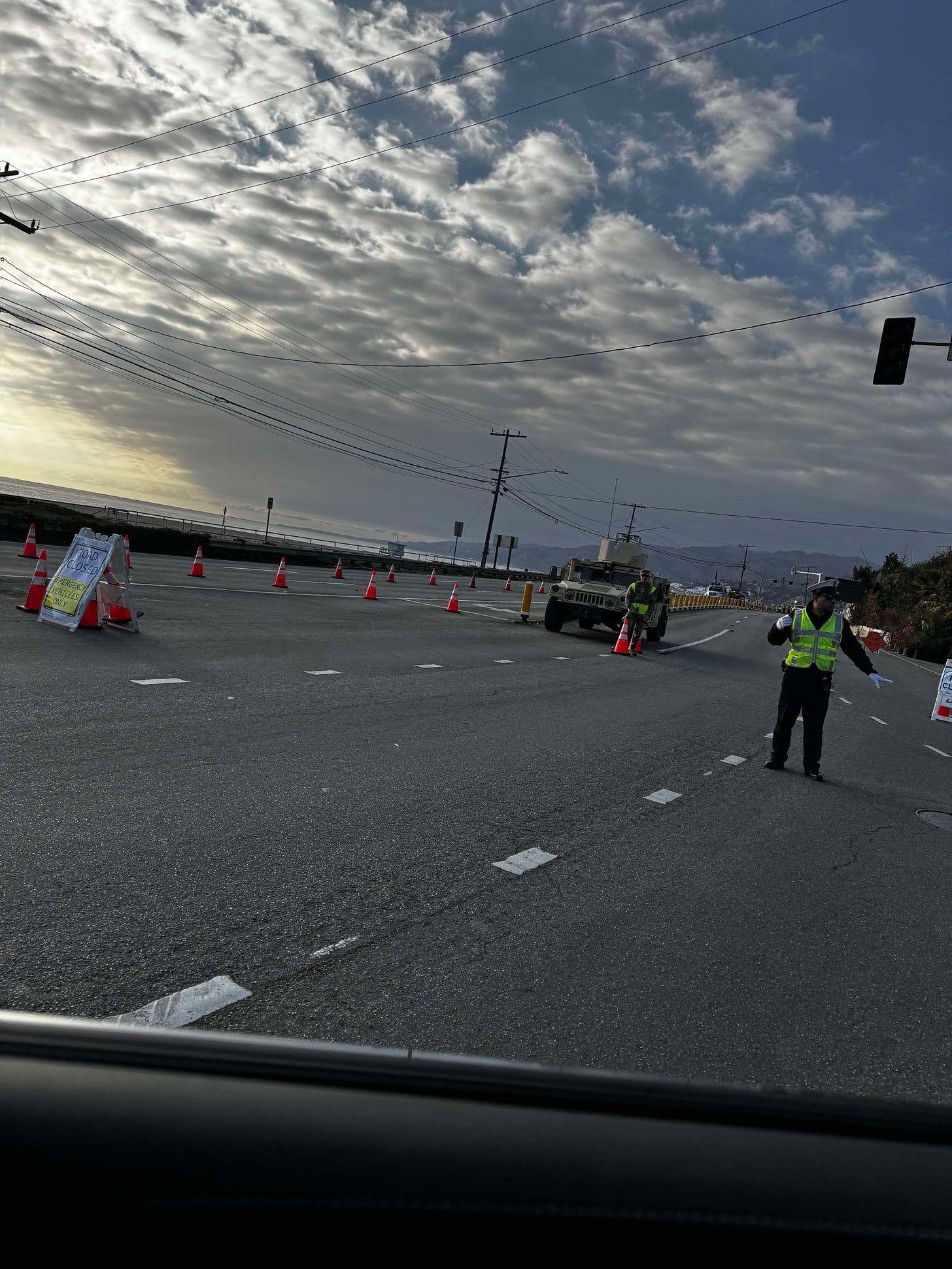
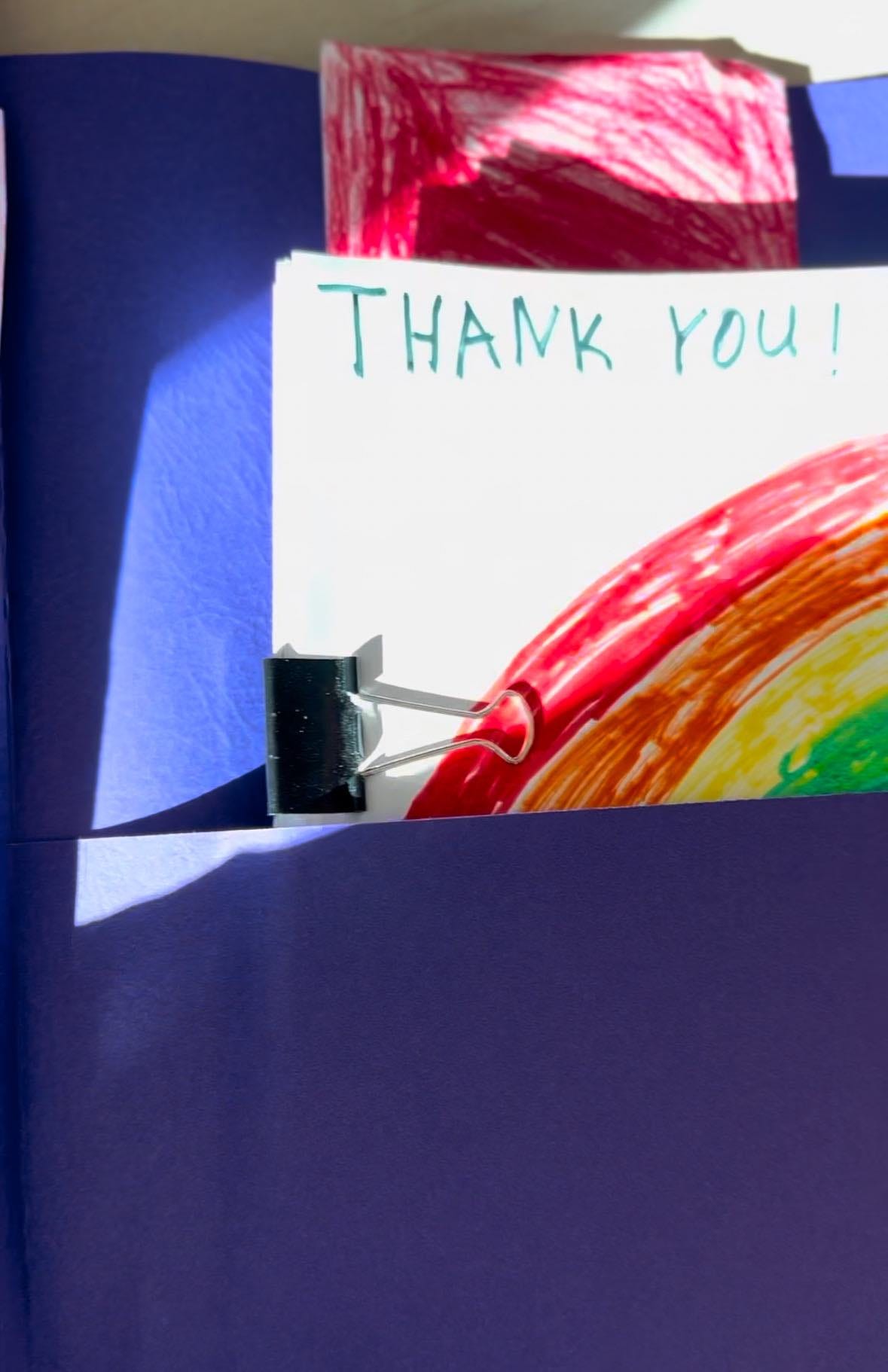
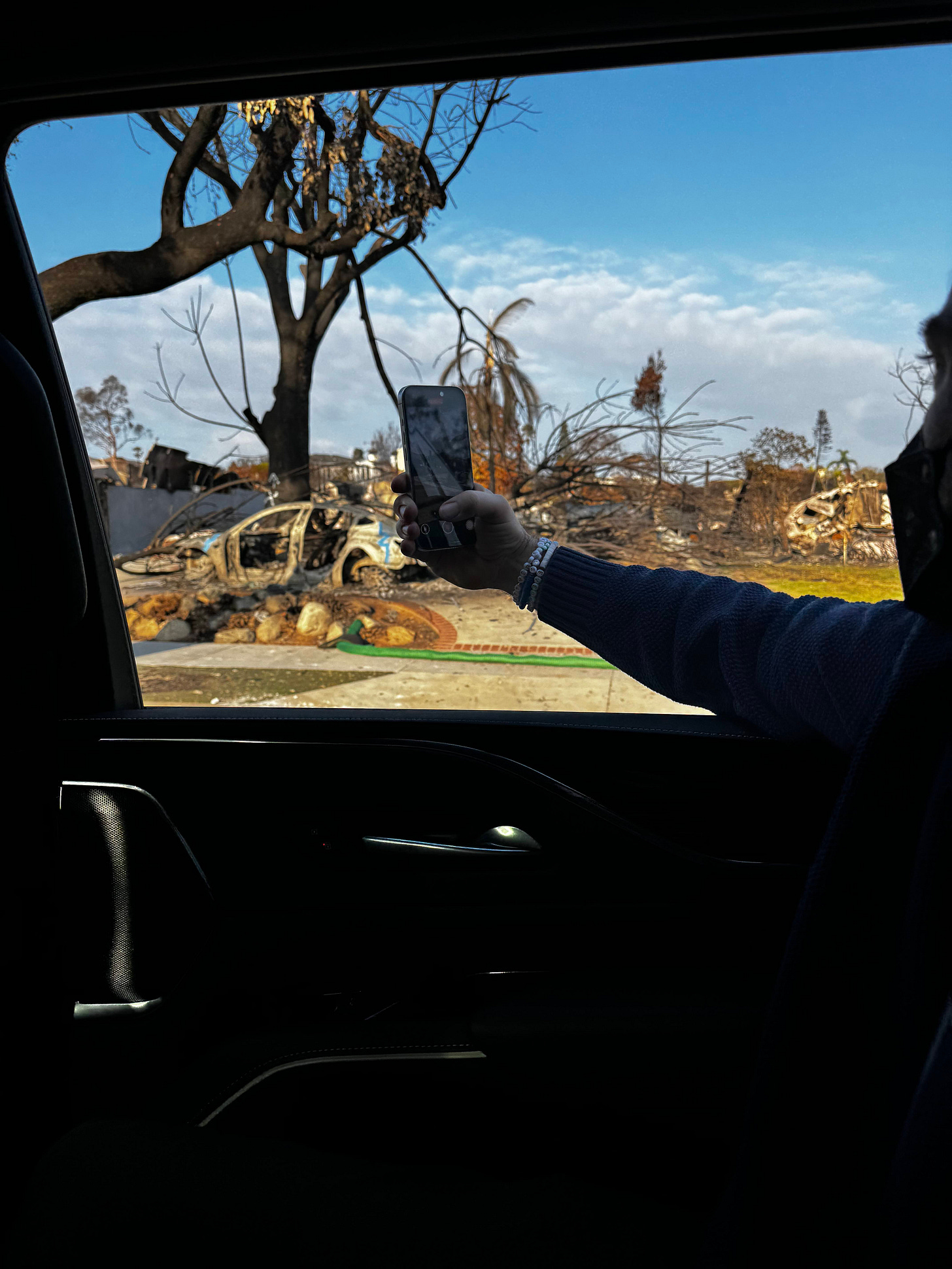
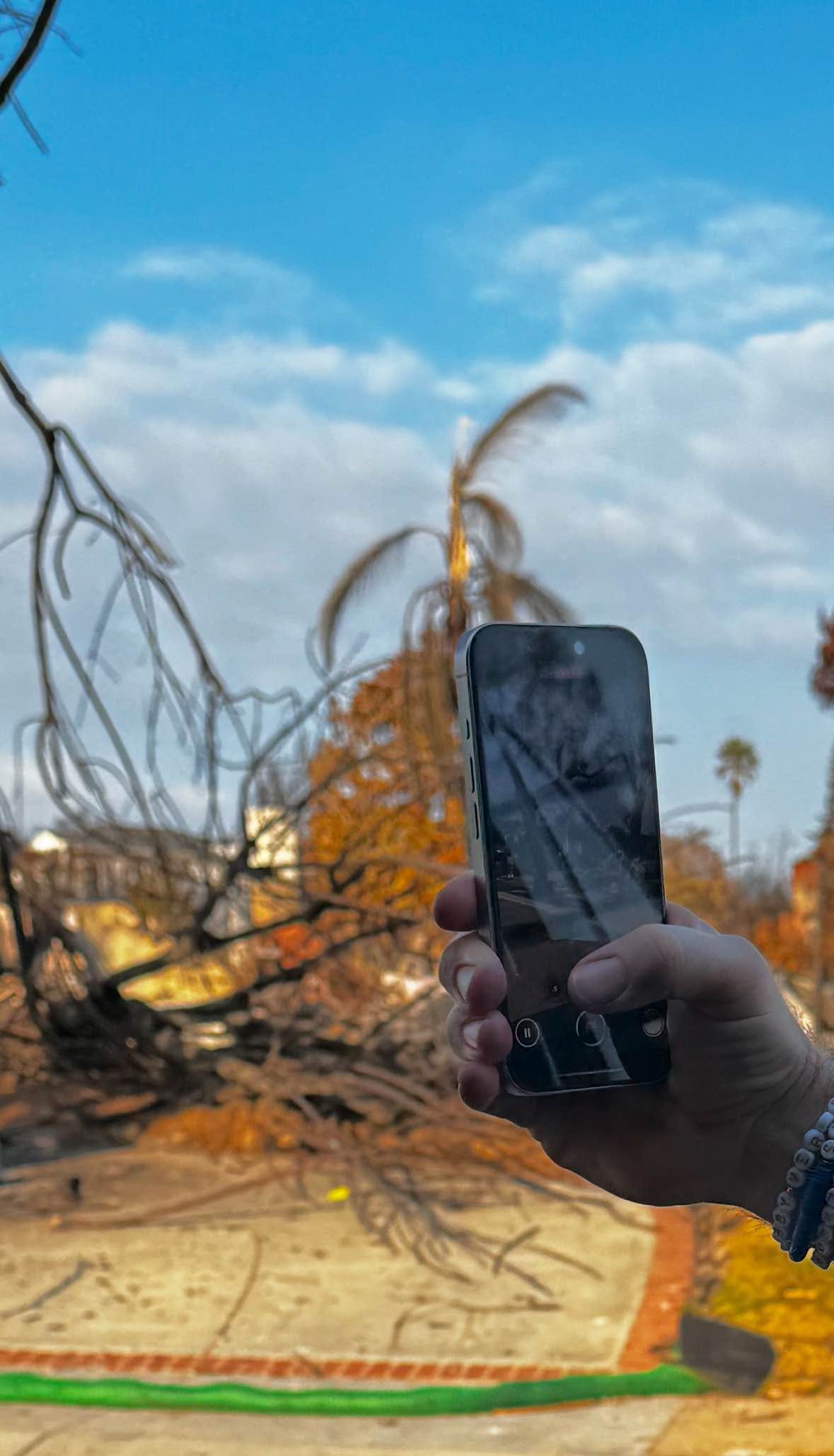
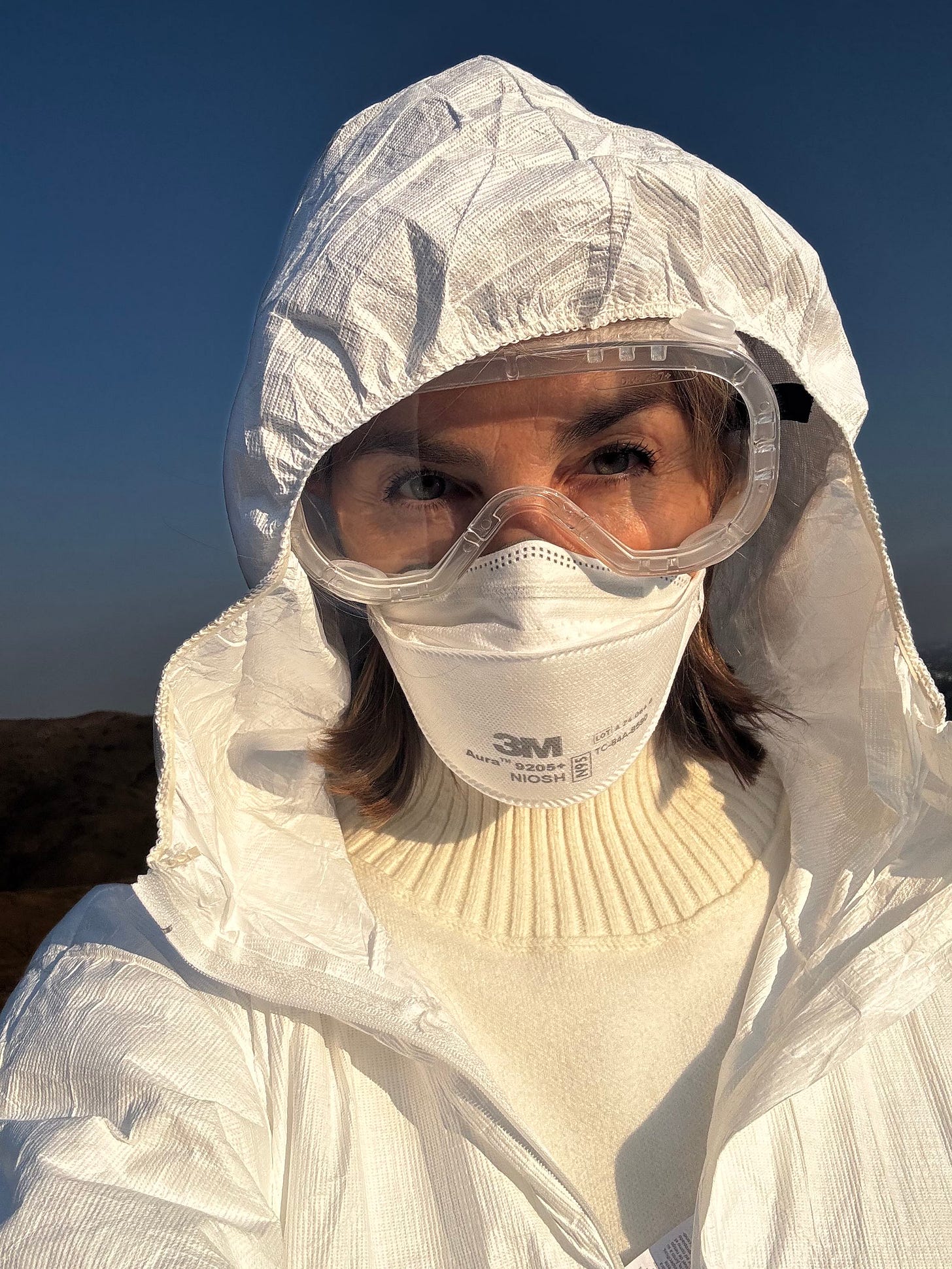
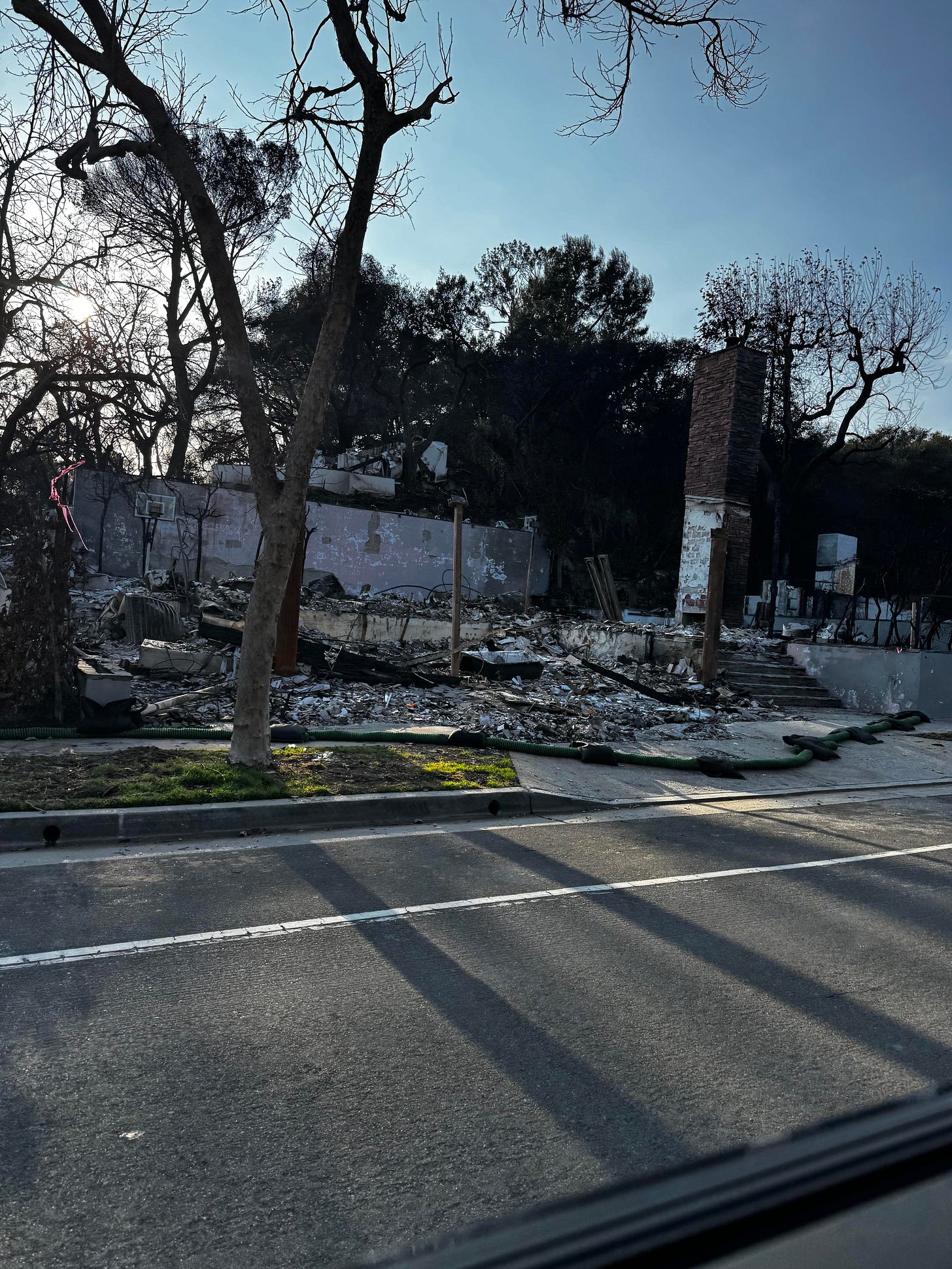
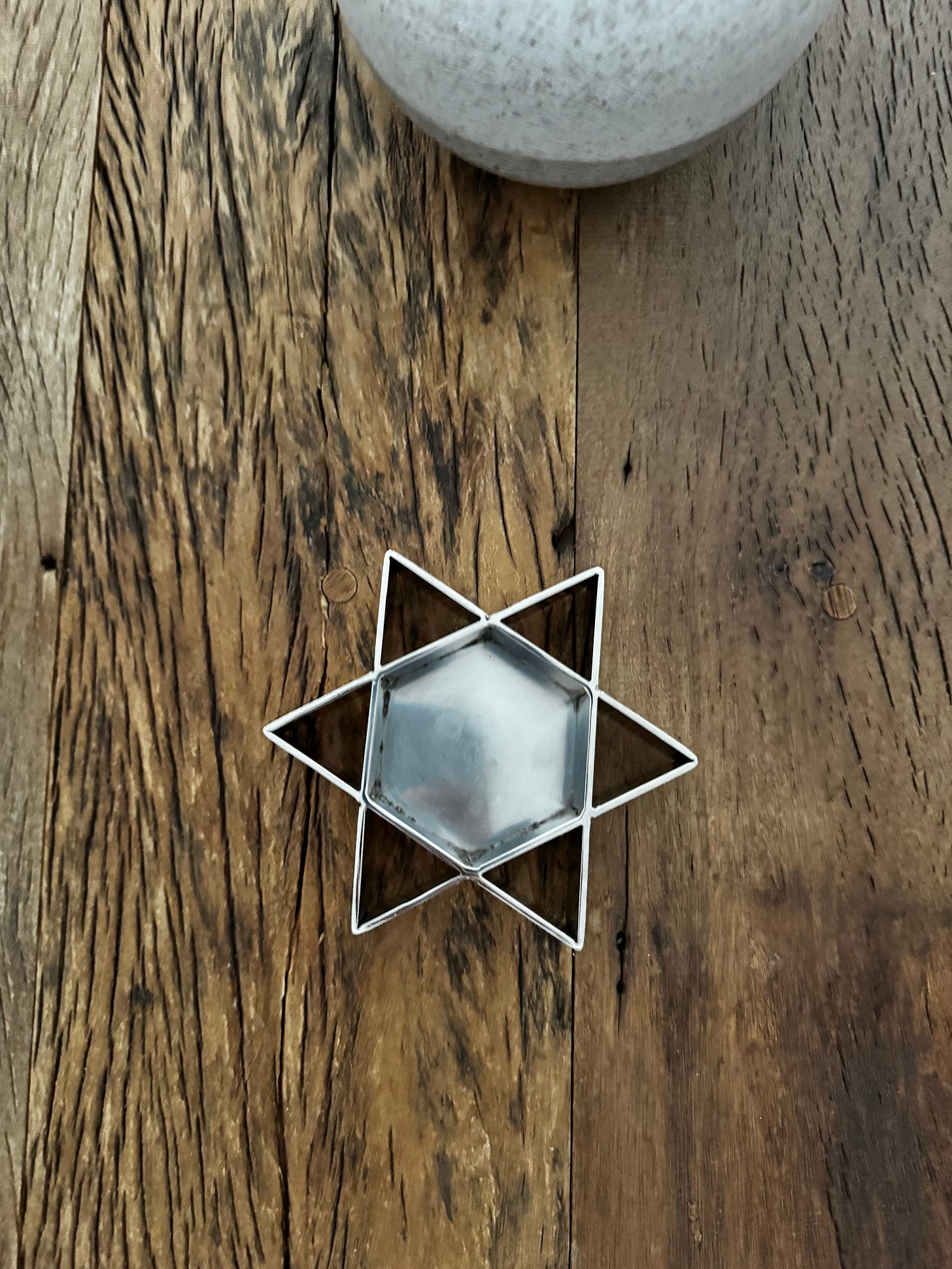
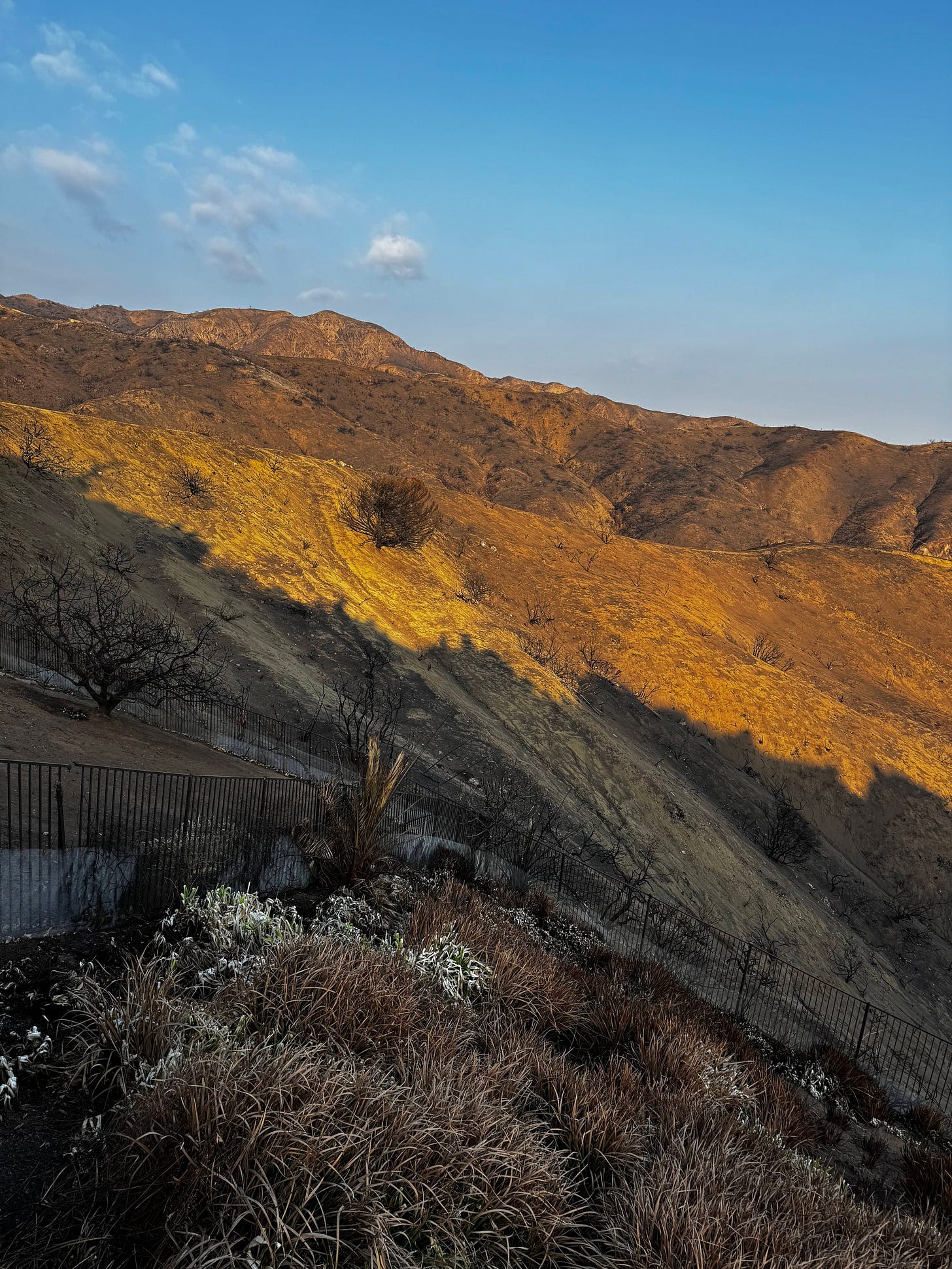
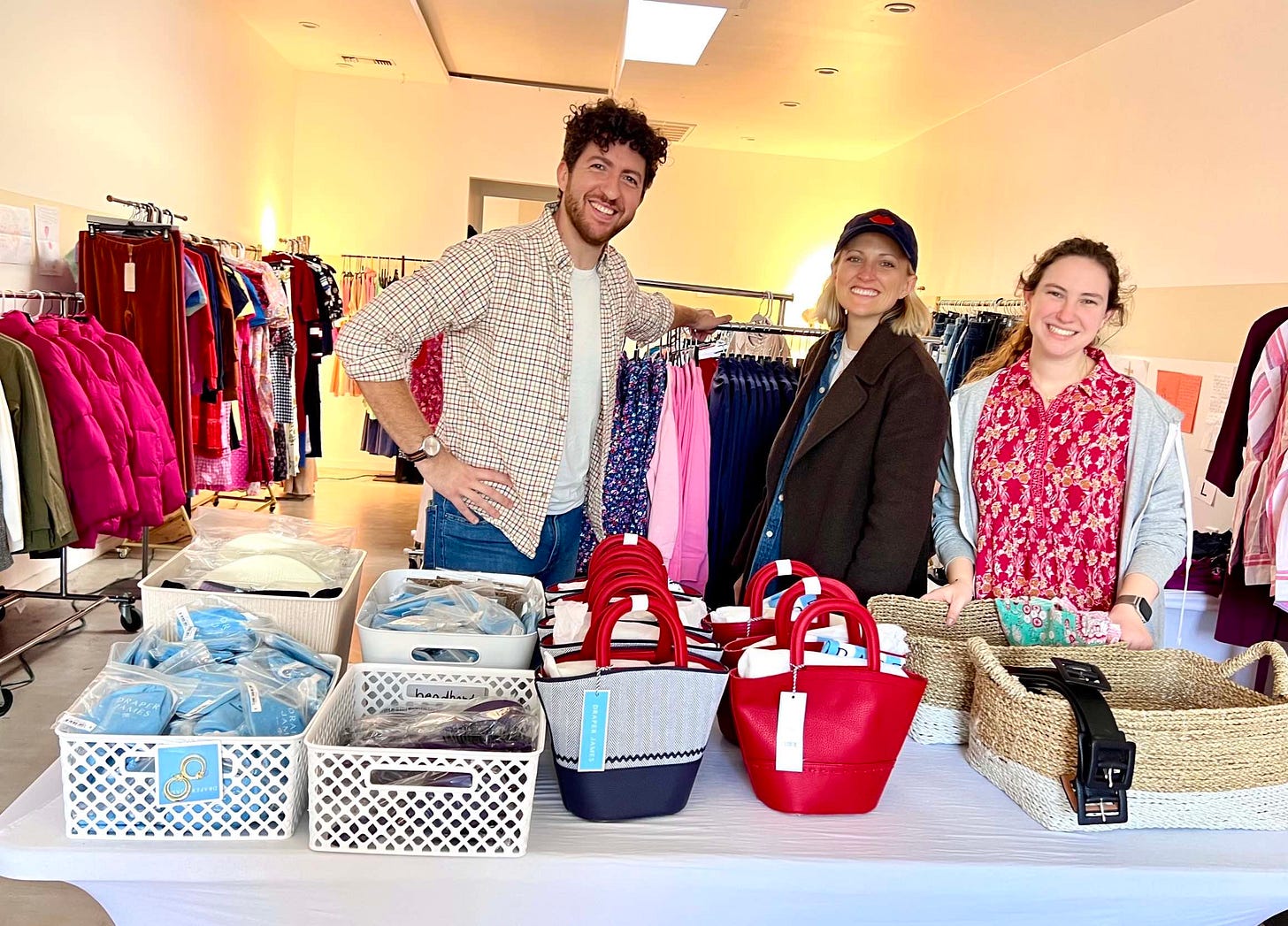
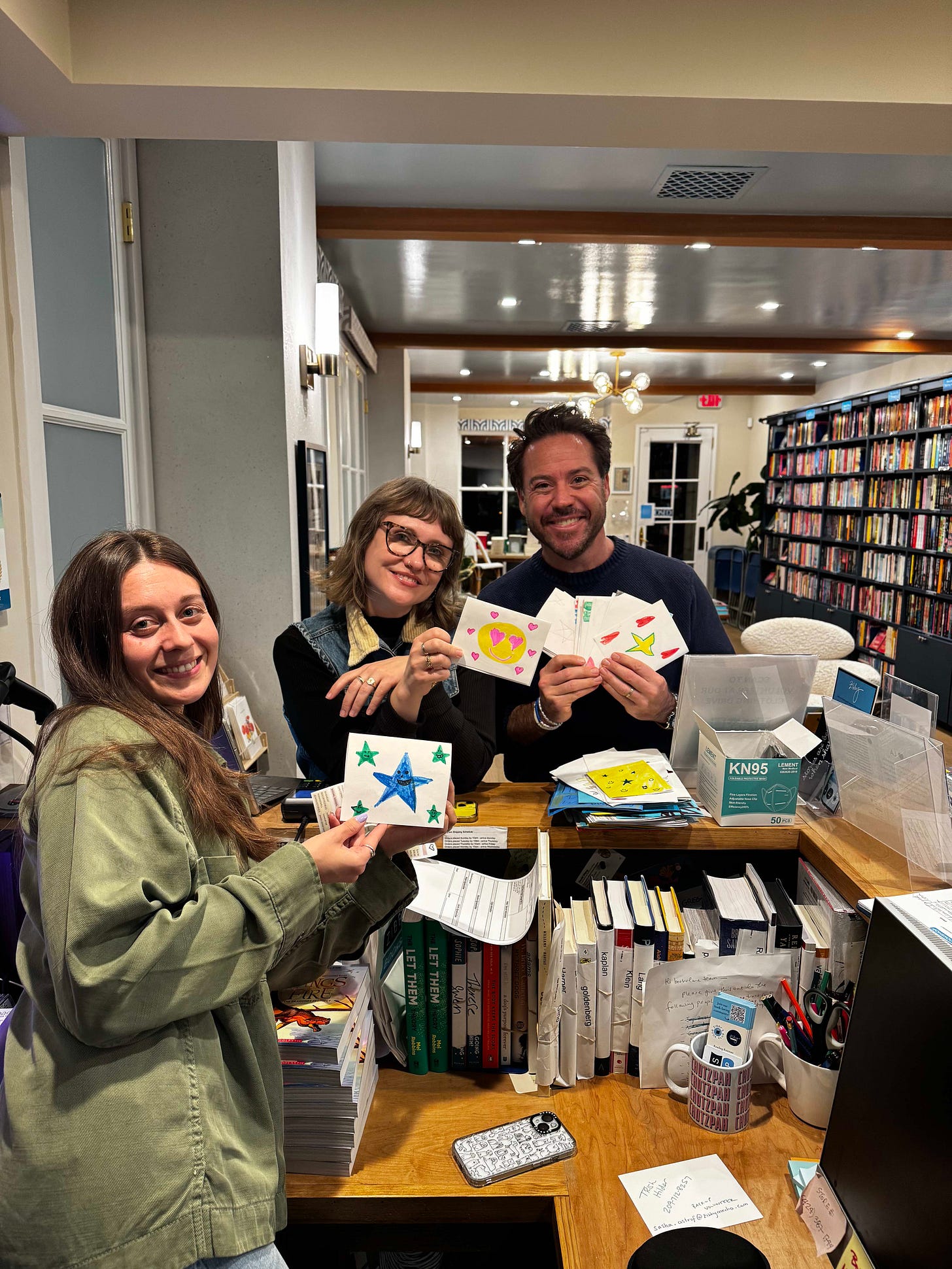
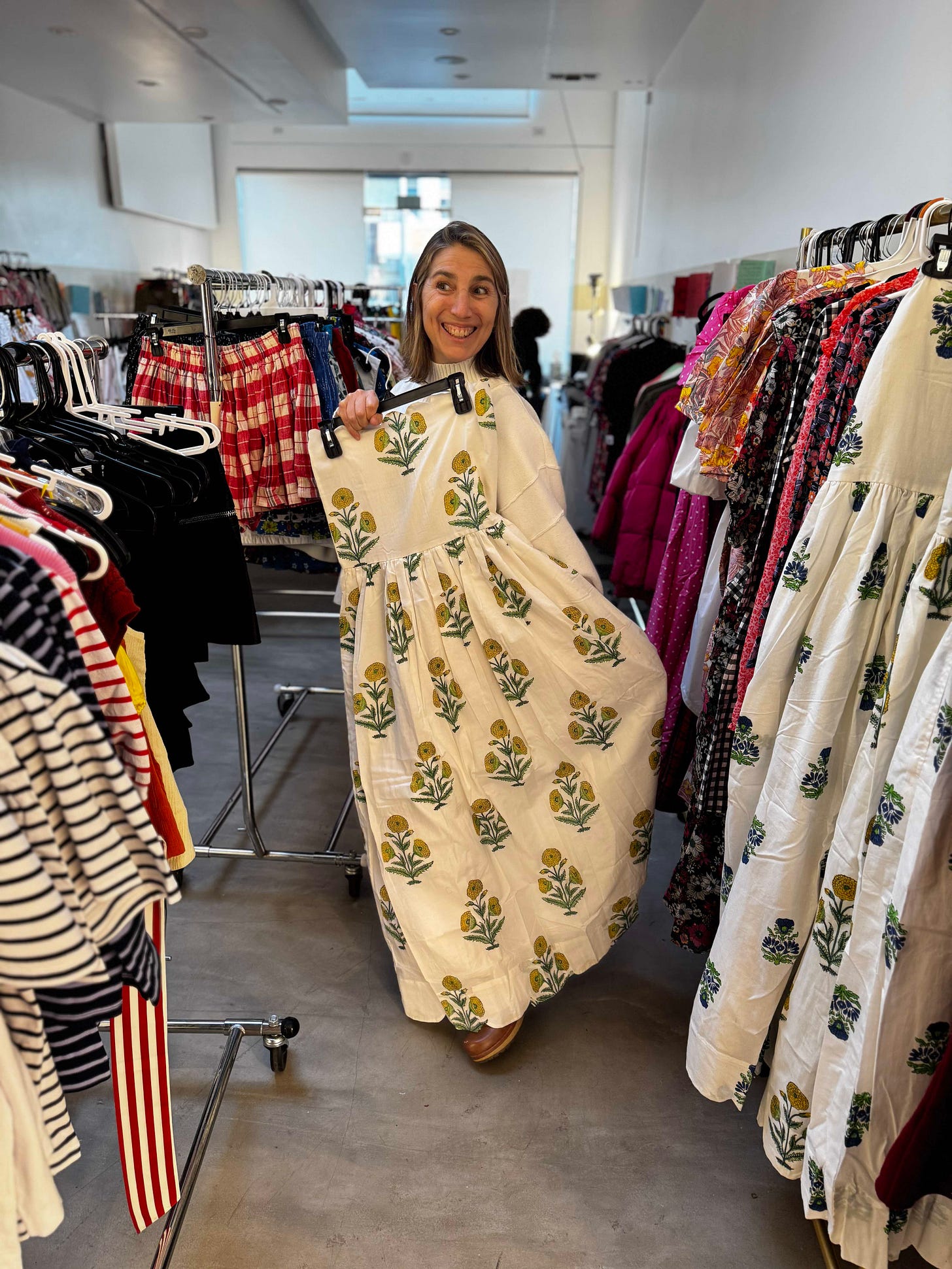
Zibby, Though your story is painful to read, you always manage to bring something uplifting. I wish you and the community all the comfort and support that is needed.
Thank you for sharing. We live in Santa Monica Canyon, right below the Palisades. It has been a rough month! We were evacuated for 17 days. We are home now, albeit without clean tap water. So grateful to still have a house. So many feelings - sadness, anger, gratitude. We are grieving for the Palisades, a place we loved and went to often. We are devastated for our friends who lost their homes, for the community that was decimated, for the schools that burned down... We have been helping others as much as possible. What else can we do? Thank you again for sharing.